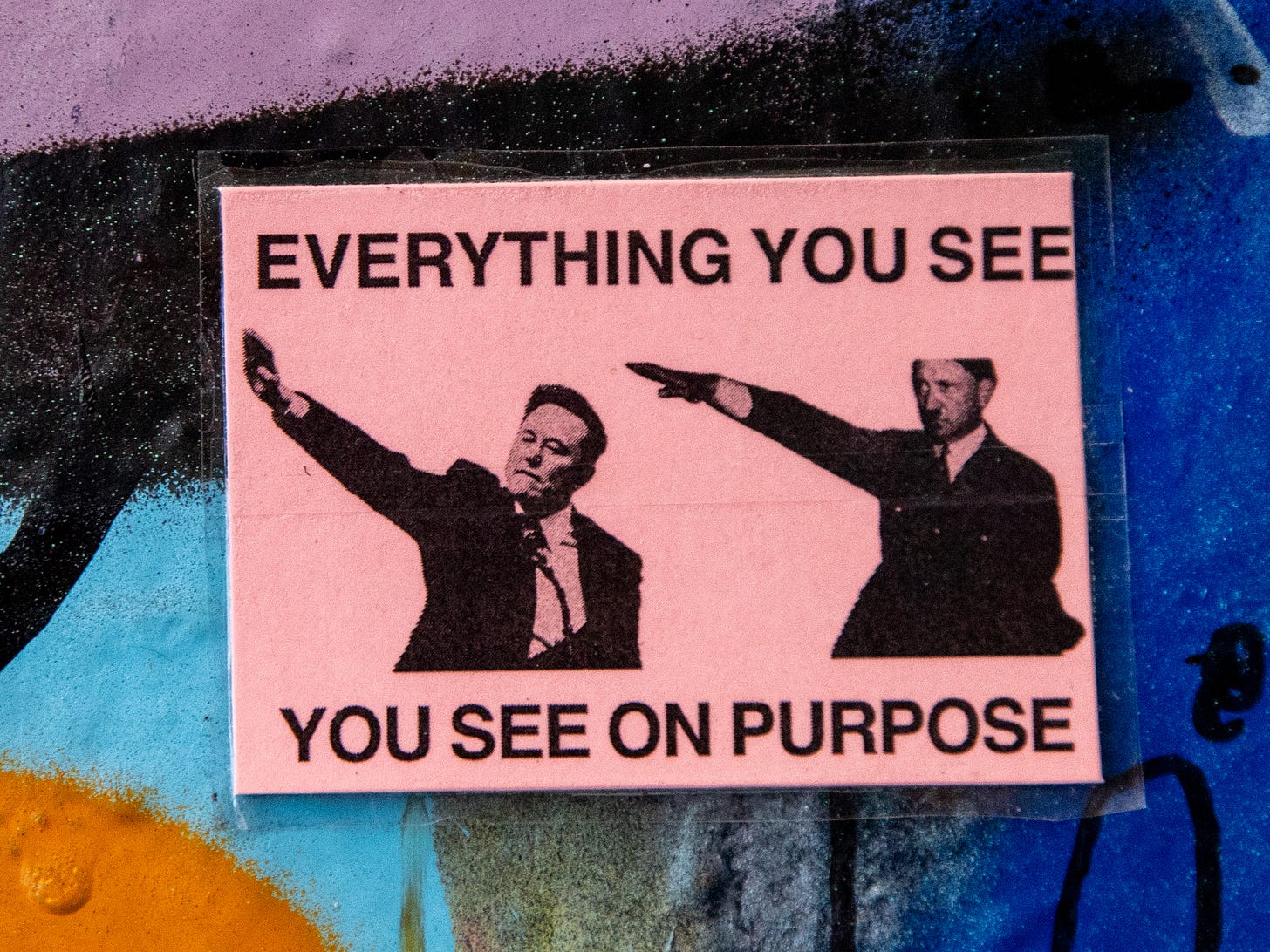a bizarre intellectual bottom
how right-wing extremism and liberal fragility are both failing democracy
Recently American Vice President J.D. Vance gave a speech at the Munich Security Conference, established in 1963 to prevent military conflicts similar to the Second World War. Vance’s speech was, as EU Parliament member Marie-Agnes Strack-Zimmermann described, “a [new] bizarre intellectual bottom”.
Under the guise of protecting free speech, he argues that regulating far-right speech online or offline is anti-democratic. This is obviously incorrect. But it also made me think, what have I done to protect free speech? To prevent its weaponization, as I am seeing Vance do. How intellectually open am I, truly? How pluralistic are we, truly? Those of us on the left, how willing are we to engage with intellectual challenges and not descend into hostility or censorship? If we are not defenders of democracy, will our leaders defend it? J.D. Vance certainly won’t.
If you dislike the moral policing of the left, I trust you won’t have much affection for the intolerant right.
without ethics, free speech is meaningless
In January Alice Weider, the head of Germany's far-right Alternative für Deutschland (AfD) party, chatted with Elon Musk about AfD on X. Vance supports their right to air that conversation on in the EU despite parts of it violating the Digital Services Act (DSA). Weider’s political circle includes innovative men—Björn Höcke, Maximilian Krah, and Matthias Helferich—all known for giving a brand refresh to Neo-Nazism.
In his Munich speech, Vance goes on to defend the rights of those sharing non-consensual images and videos and their freedom to post “insults of a sexual nature, statements advocating sexual assault or rape, and sharing videos of torture or killing”. Leveraging all the suaveness of a Yale graduate to legitimize the illegitimate, Vance shares unsubstantiated theories about Covid-19, lies about abortion laws in Scotland, and supports the election of Romanian far-right candidate Cǎlin Georgescu.
To understand his positioning on free speech we need look no further than this very speech at the Munich Security Conference. It is not intellectual freedom he is defending—a freedom which is central to democracy—but the freedom to lie.
Musk, Weider, and Vance all self-describe their views as “common sense” and when delivered calmly, confidently, without fact-checkers or proper context they do indeed sound “sensible” to the lay person. However, Vance’s speech is the type of intellectual dishonesty and political manipulation the EU is trying to regulate and protect its citizens against.
Now is the time for those of us who believe in pluralism to overwhelm public discourse with its defense. In other words, we do not need to cooperate with extremist groups just because they are in power. In fact, possibly their being in power is all the more reason to resist them. It is also an opportunity to examine strains of intolerance among friends.
content moderation remains unsolved
Questions about content moderation at scale are not easy, hence the Trust and Safety field discusses the subject and its nuances at length. Experts in the field are well-aware that content moderation, taken to an extreme, is censorship. They are also aware that content moderation is values based and subject to bias. This is why, per the DSA, platforms operating in the EU are required to provide greater transparency into, well, everything. Clearly, Vance is no fan of the DSA. Is now a critical moment for the Trust and Safety field to elevate rigorous and factual debate? For all T&S practitioners to collectively challenge far-right ideology from commandeering the conversation about free speech? Is it possible the Trump-Vance administration will pressure the EU to lift or lessen enforcement on American technology companies?
not the same, but still imperfect
I am struck by how forcefully the Trust and Safety field has been thrust into the political sphere. It is surreal to see J.D. Vance ask questions that I ask every day, questions about content moderation as curation versus censorship, the bounds of free speech online, and unfairness and harshness in online social interactions. I don’t see myself in him per say, so much as I see myself in the stunned, clap-less silence of the audience at Munich that watches, with horror, the repercussions of its own actions.
Just as I disagree with Vance’s epistemic point-of-view, I also disagree with overly prescriptive community guidelines. For example, I am a firm believer in a woman’s right to choose, however, I do not believe that anti-choice speech should be censored. I think we need an online and offline society that is resilient enough to house genuine political difference and humble enough to admit when it does not know the best path forward. The Harris-Walz campaign said again and again “in this election democracy is at stake”. I agree with them, and I wish Democrats, and the left more generally, examined intolerant practices within our own camp, such as cancel culture, ideological purity tests, or the narrowing of permissible discourse. We must defend democracy against the far-right yes, but we must also defend it against our own hubris.
I want to emphasize for any on the internet who has found their way to this essay that my values and principles are not neat. I suspect none of ours are, and this is perhaps the violence of a political system, that it forces us to become as flat as the two-dimensional boxes we check.
It is only recently with a second Trump presidency that I feel the weight of protecting what is a more fragile American democracy than I assumed. It is only recently that I realized how cultural norms are what have held our democratic project together. I think democracy requires more of me: a thicker skin, a deeper patience, and a fiercer, more principled struggle — not only for justice, but for the right of others to have a different vision for the world, even at the cost of my own rage.



